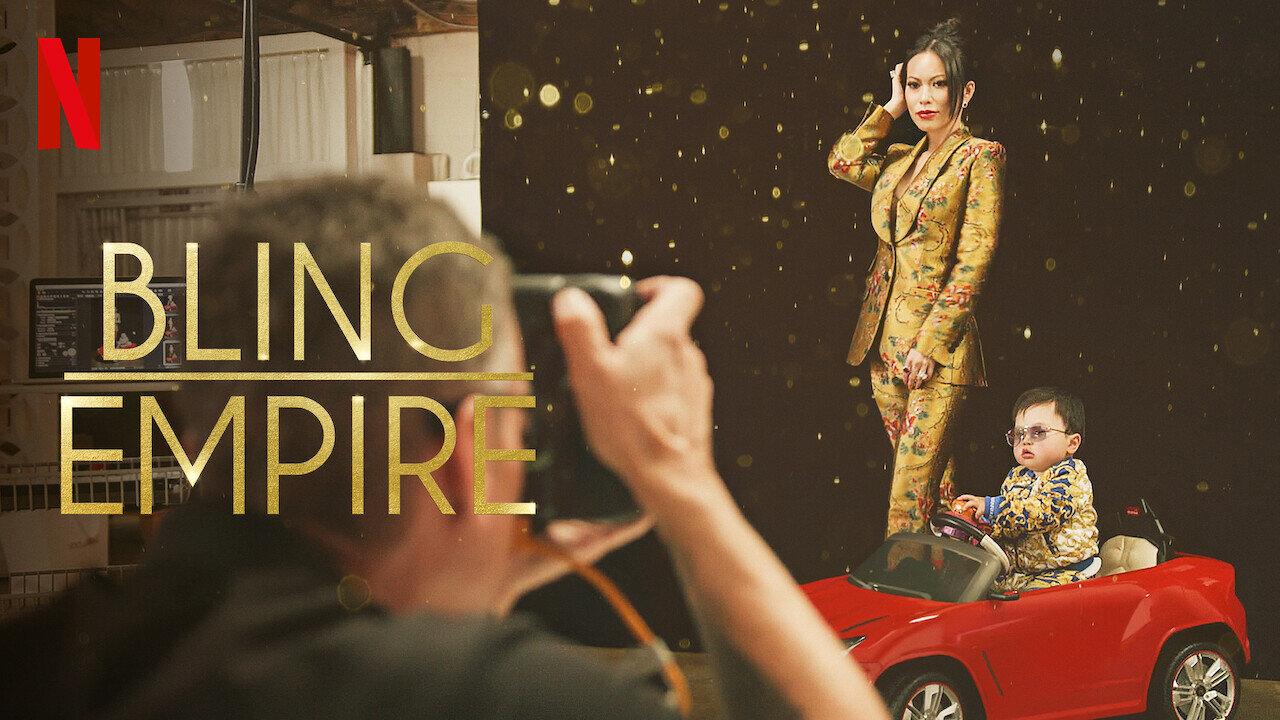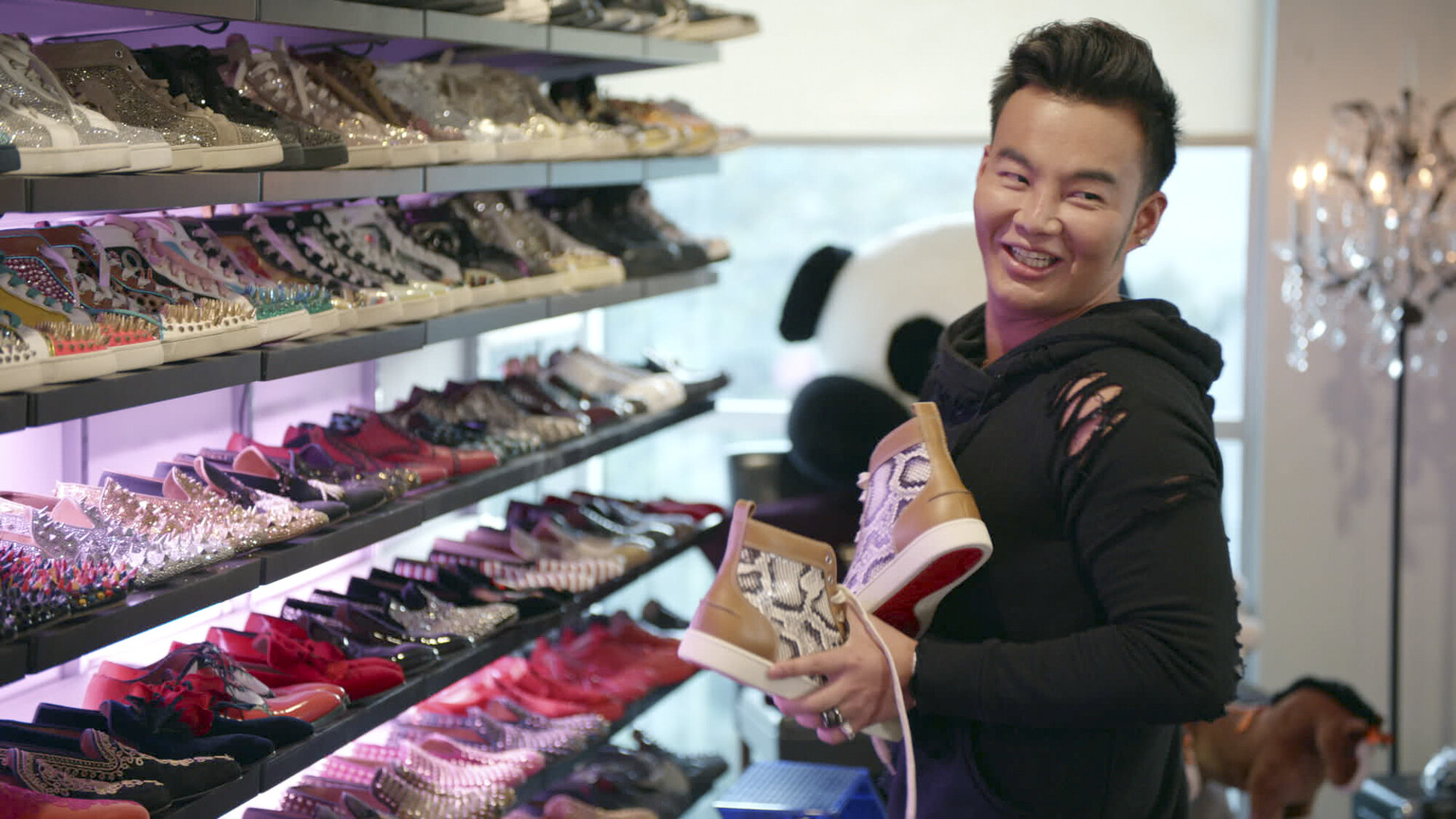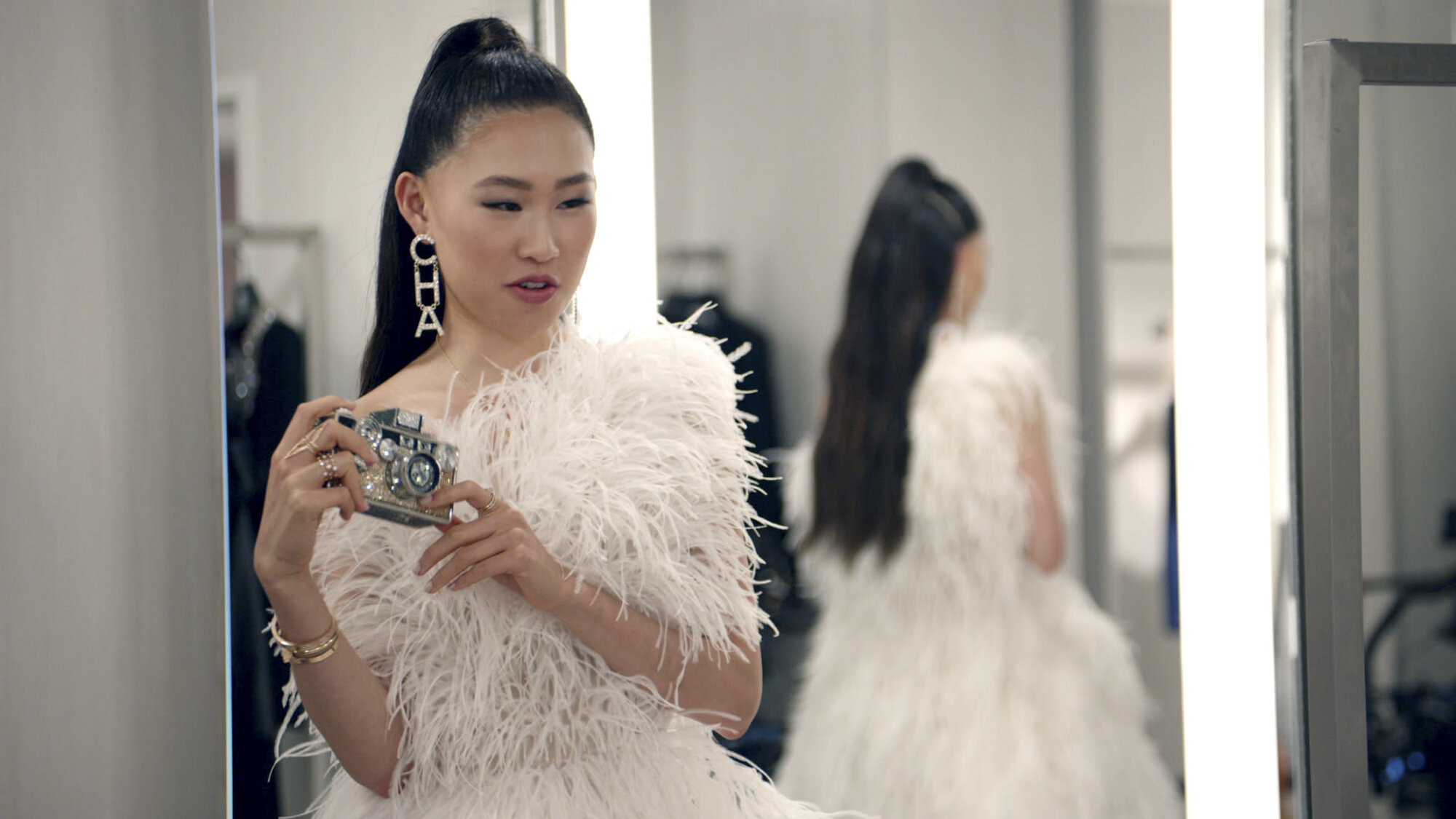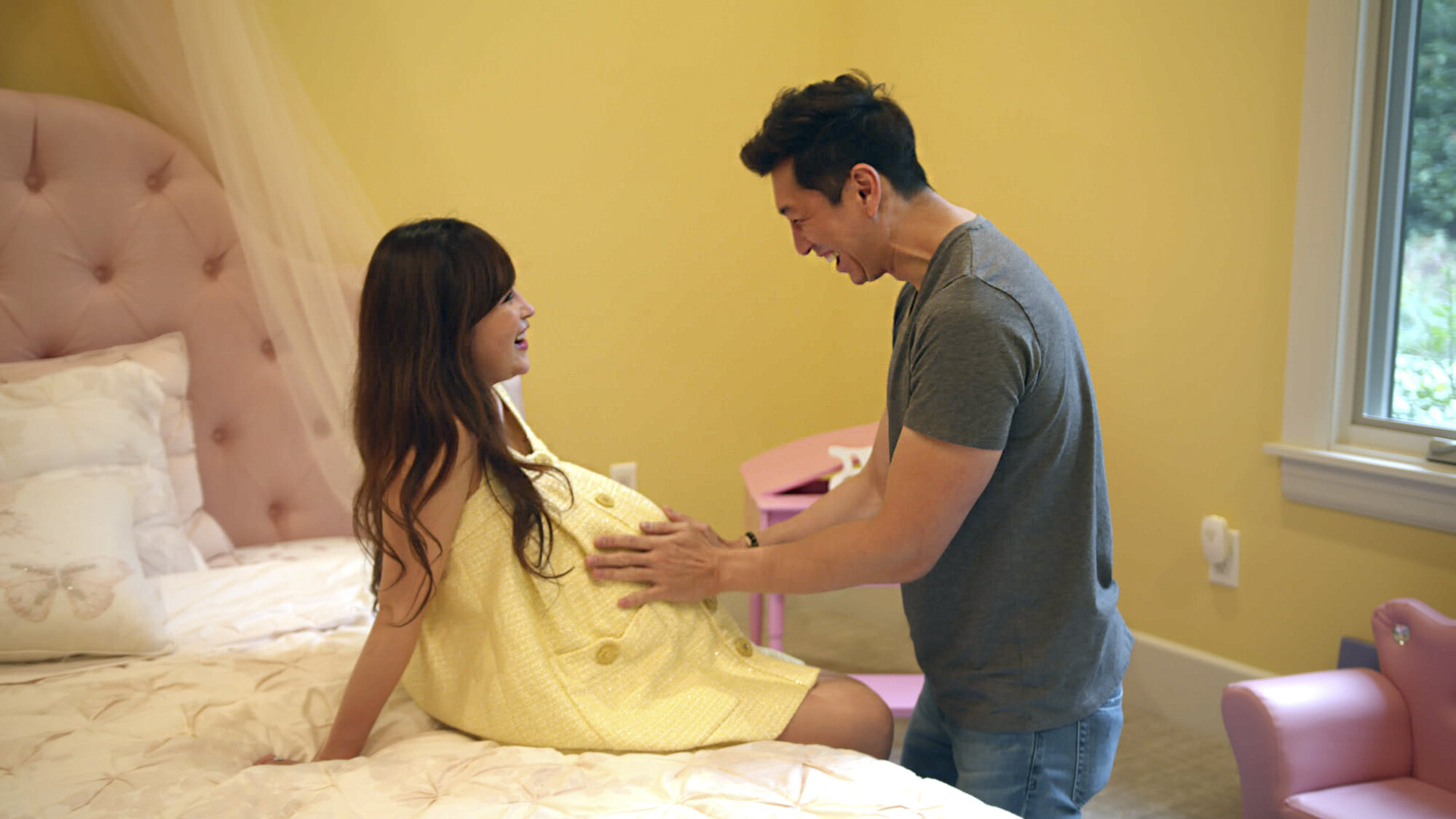The Realities of Bling Empire
Written by Cindy Tu
Edited by The Fête Chinoise Team
Christine ChIu & Baby G AT A PHOTOSHOOT. Photo credit Netflix
Anna Shay wearing high jewelry. Photo credit Netflix
The show starts by mixing an ordinary fellow, portrayed as a working-class member, into a group of affluent Asians. To be more specific, the type of affluent Asians we're referring to comes from multi-generational wealth – the kind of wealth that has the comfort to sleep in high fashion or travel in private jets at their leisure. To turn up the drama for viewers, cue the cattiest rivalries, hookups and throwdowns. It makes for the perfect clickbait. However, is it really the Asian narrative that we want in North America? Amidst the hate crime, anti-Asian racism and xenophobia propelled by Covid-19, was the timing right? What is the purpose of the show anyway?
A FEW CAST MEMBERS OF BLING EMPIRE. Photo credit Netflix
Was the timing right?
“... it bids to question if this overly opulent facet of Asians is harming the dialogue within [#stopasianhate & #facerace] movements.”
Without a doubt, Bling Empire's show is filled with pretentious comments from all cast members, all in good fun to poke at their cushy-lifestyle. A couple remarkable quotes from the show include how their circle of friends may "[go] to Paris more than Silver Lake." In this case, the reference is to the popular Silver Lake, Los Angeles. If you are unfamiliar with this city, the quote is a general call out to a desirable local neighbourhood filled with the trendiest bars & restaurants and home to notable celebrities and socialites. In another event, one cast member, Kane Lim, obnoxiously shouts in public, "The Asians are here! We are here to buy your property!" A comment that nods to the controversial topic that Asians are often the top foreign real estate purchasers in North America. A correlation that is considered to be a factor in home prices rapidly increasing to rates that impact domestic buyers' affordability.
Kane Lim in his home. Photo credit Netflix
Notably, today Asians in North America are battling an uptick of anti-racism and xenophobia in their neighbourhoods. Of which, many of the cases are fuelled by the Covid-19 pandemic. Movements of #stopasianhate for Americans and #facerace for Canadians have been flowing through social media platforms to fight against the hate and violence on the Asian communities. And so, it bids to question if this overly opulent facet of Asians is harming the dialogue within these needed movements. Understandably, the timing of the show can be seen as entirely tone-deaf.
On the flip side, was their trailer a good insight into the messaging of the show?
What’s the hook?
This 1% privilege upper-class and lavish lifestyle makes for the perfect clickbait — a fussy ingredient for any successful reality show, including Keeping Up With the Kardashians and Selling Sunset. But you might be hooked on the cast's openness to talk about deep-rooted personal issues, a rarity amongst Asian culture to share personal struggles. While observing the cast's willingness to share their difficulties on a global platform – no matter how nominal or unrelatable the topic may be – the thought that Asian viewers may subconsciously gain the slightest courage to talk with others about supposed-stigmatic topics certainly peeped.
Dr. Gabriel Chiu & Christine Chiu at home. Photo credit Netflix
What is the Asian narrative?
The producers attempt to showcase a piece of the Asian narrative by highlighting the significance and importance of cultural practices, auspicious traditions, and societal pressures among Asian communities within America for a non-Asian audience to easily follow.
“... may change the mainstream audience’s understanding that Asians in America are beyond these fixed views. ”
If we analyze the Asian representation on North American screens, the roles we began with were often lessened with Asian stereotypes: timid, nerdy, quirky, unpopular, or the one who knows kung-fu or karate. And for the first time, Crazy Rich Asians brought a storyline outside of these usual characters in North America. They shifted the conversation back to Asian diversity.
Bling Empire brings in the goods of a reality show for those looking for escapist entertainment – where the money, the high fashion, and the jets may just be a front to the deeper personas. The cast members may be questionable role models for the young generation. Still, it may change the mainstream audience's understanding that Asians in America are beyond these fixed views.
Kevin Kreider in Kane Lim’s Home. Photo credit Netflix
Igniting Conversations
Conceivably the timing of the show was completely off and insensitive. However, within the first few weeks of the show's release, Bling Empire hit top 10 titles across must-watch-lists internationally, headlines on media outlets mentioned them, celebrities were interested, and significant chatter amongst social media platforms emerged – all this seems to be in the direction of a successful show. If you haven't watched Bling Empire yet and are sitting at home looking for a frivolous and intriguing show, definitely consider adding Bling Empire to your watch list. However, viewers should be cautioned that it is a reality show – produced purely to entertain and not inform.
Despite the wide range of opinions on Bling Empire, the show has expanded the onscreen genres of an Asian cast. It has the world talking and conversations going. And here I am, writing about it, in hopes for you to think about what this might mean next for Asians. How do we handle conversations of possibly yet another stereotype of Asians, i.e. rich Asians? What does it mean to be Asian in North America? How can we empower our community? How do we want the next page of our Asian narrative to evolve?












![Harmony in Cinema: Fagara (2019) [Spoiler Alert]](https://images.squarespace-cdn.com/content/v1/55e06149e4b0e924d81546a2/1602175418584-U39NLAH9YGBNIH0MLYJS/Fagara02.jpg)





